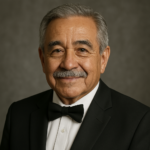As Master Masons, our duty extends beyond ritual excellence. Behind every well-run degree and fellowship event is a framework of sound lodge administration. Whether you’re an officer, trustee, or active brother, understanding the mechanics of lodge management helps ensure the health and future of our fraternity.
Laying the Foundation: Bylaws and Governance
Each lodge operates under its own set of bylaws. These outline meeting schedules, dues structure, officer elections, and committee requirements. Amending lodge bylaws typically follows a formal process: a written resolution, notification to the membership, discussion at a stated meeting, and a vote by the members present. Final approval is often required from your Grand Lodge.
When extraordinary circumstances arise, such as meeting in a new location, adjusting timelines for degree work, or wearing regalia publicly, a formal dispensation may be needed. This is typically granted by the Grand Master or a designated officer.
Meetings: The Lodge in Action
Stated Meetings
These are the regular business meetings of the lodge. The agenda often includes reading minutes, financial reports, balloting on applications, committee updates, and discussion of lodge programs. While all Masons may attend, only Master Masons in good standing usually have voting privileges.
Special Meetings
Called at the discretion of the Worshipful Master, special meetings are typically held for conferring degrees, installing officers, or attending to specific lodge business such as funerals or outreach.
Officer Duties: The Pillars of Lodge Leadership
Every officer has a distinct role that contributes to the whole:
- Worshipful Master: Leads the lodge, appoints committees, presides over meetings and degrees, and ensures the lodge operates smoothly. Delegation and mentoring are key to his success.
- Senior Warden: Assists the Master and often oversees candidate education. Planning the upcoming year and supporting lodge finances are also part of his preparation for the East.
- Junior Warden: Oversees the social life of the lodge and helps foster fellowship among the brethren. He may also support Masonic education and degree coordination.
- Treasurer: Manages lodge funds, keeps accurate financial records, files necessary reports, and ensures proper disbursement of payments.
- Secretary: Handles correspondence, maintains membership records, prepares minutes, manages communications, and supports day-to-day lodge operations.
To avoid burnout and conflict of interest, it is a best practice to assign one role per brother and avoid overlapping officer duties, especially in financial or administrative areas.
Committees: The Working Arms of the Lodge
Essential Committees
- Charity Committee: Assists brothers in need and manages relief efforts.
- Audit Committee: Independently reviews financial records annually.
- Membership Retention: Reaches out to inactive members, ensures dues are paid, and keeps brothers connected.
Optional Committees may include:
- Masonic Education
- Community Outreach
- Candidate Coaching
- Sweethearts and Widows Support
- Event Planning
- Future Officer Development
These committees enhance the member experience and encourage deeper engagement.
Executive Committee: Strategic Leadership
An Executive Committee, typically made up of the Worshipful Master, Wardens, Secretary, and Treasurer, meets regularly to plan lodge activities, review goals, and prepare for stated meetings.
The first meeting of the year, often called the orientation meeting, should set the tone for leadership. Topics might include a multi-year vision, financial resources, upcoming programs, and lodge culture. Regular monthly meetings ensure ongoing coordination, delegation, and follow-through.
Communication: Keeping the Craft Connected
Effective communication strengthens fellowship and participation:
- Lodge Website: Share your lodge culture, leadership, and event details.
- Social Media: Build pride, promote events, and engage the community.
- Lodge App or Calendar: Encourage event RSVPs and timely updates.
- Trestleboard (Print or Digital): Reach members offline and at a distance.
- Email: Provide quick updates, calls to action, and reinforce personal outreach.
Transparency: Reporting and Recordkeeping
Clear, accurate reporting builds trust. Officers should regularly share:
- Financial reports (monthly, semi-annual, and annual)
- Membership updates
- Committee reports
- Hall association or building-related financials (if applicable)
Storing these records in a shared digital location, accessible to lodge members, supports transparency and continuity across officer transitions.
Growing in Leadership
Lodge leadership is a craft in itself. Officers are encouraged to attend training events, retreats, or conferences when available. Mentorship within the line and access to published guides on lodge management can be invaluable for maintaining momentum and developing new leaders.
A lodge thrives when its administration is handled with the same care and attention as its ritual. Through organization, communication, and teamwork, we strengthen not only our individual lodges, but the entire Masonic family. Let us carry the tools of governance with the same reverence we do the working tools of our degrees.
Fraternally,
T. A. Westgate.


